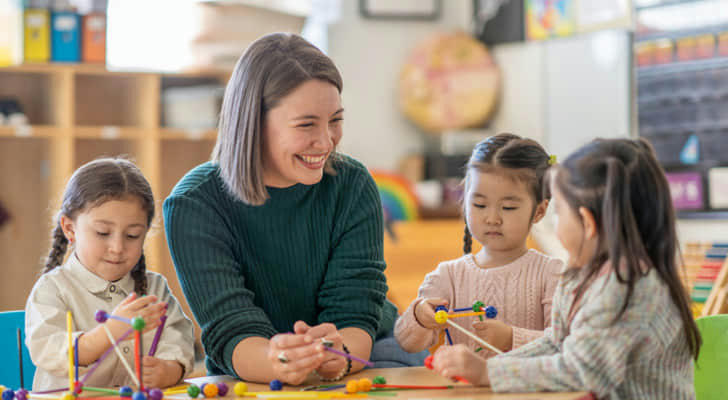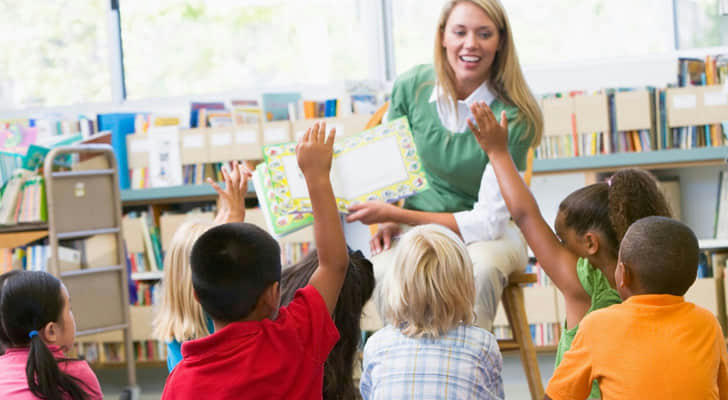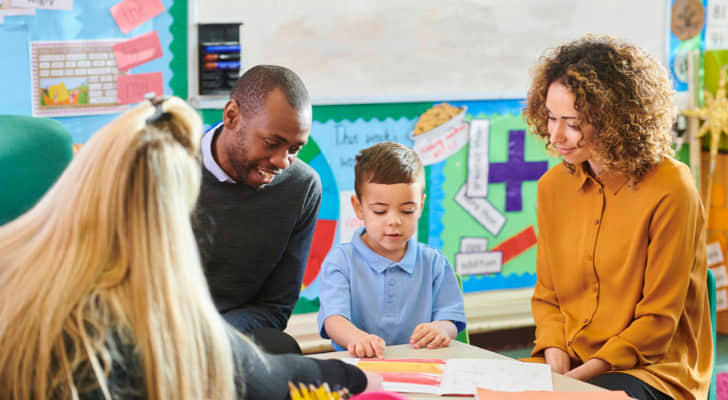The Love and Responsibility of Kindergarten Teachers
Kindergarten education is an important part of a child’s growth. It’s not only the start of formal education but also a child’s first experience of learning and socializing with others. Kindergarten teachers play a key role they are not just educators, but also guides and companions on the children’s journey of growing up. Every word and action from a teacher can shape a child’s development and learning.

Understanding Child Psychology and Behavior
Understanding how young children think and act is crucial for teaching them well. Kids go through different stages as they grow, and their thinking, emotions, language, and social skills develop in unique ways. Kindergarten teachers need to observe each child carefully and adjust their teaching to meet the children’s needs.
For example, 3-4-year-olds often think about things from their own perspective and might struggle with sharing. Teachers can use games or role-playing to help kids learn to work together. By the time children are 5-6 years old, they begin to understand rules, and teachers can help them follow simple class guidelines.
Case Study: A boy named John had trouble adjusting when he first started kindergarten. He would cry and didn’t want to play with others. With his teacher’s patience and support, he eventually felt more comfortable and started making friends. This shows how emotional support can make a big difference in a child’s learning.
Creative Curriculum and Teaching
A good kindergarten curriculum should be fun and easy for young children to understand. Thematic teaching is one approach where different lessons are connected around a common theme, allowing children to explore and learn in a playful way.
Activities like arts and crafts, music, and painting help children develop creativity and fine motor skills. For instance, creating a simple paper cup telephone not only teaches them about how sound works but also encourages teamwork.
Science experiments and outdoor exploration give kids hands-on learning experiences. Teachers need to make sure these activities are both fun and safe. For example, taking children outside to observe plants teaches them to be curious and respect nature.

Managing the Classroom and Creating a Positive Environment
A positive classroom environment helps kids grow emotionally and mentally. Kindergarten teachers should set clear, simple rules that help children understand what’s expected of them. For example, instead of saying “Don’t push,” teachers can say “Please use gentle hands” to guide behavior.
Teachers should also focus on encouraging children rather than comparing them. Each child should be praised for their own progress, which helps build confidence and a love of learning.
The classroom setting plays an important role, too. A warm and inviting space can help children feel comfortable and ready to learn. Creating areas like a “reading corner” or “science zone” encourages exploration and independent learning.
Building Partnerships with Parents
Good communication between teachers and parents is key to a child’s success. Parent-teacher meetings and home visits help teachers learn more about a child’s background and how to support them better in the classroom.
Using technology like apps and social media to share updates with parents also helps. Teachers can easily share what’s happening in the classroom, and parents can share concerns or ask questions. When parents express worries, teachers should listen patiently and work together to find solutions.

Personal Growth and Professional Development
Kindergarten teachers should keep learning and improving their skills. This can be done by attending workshops, taking courses, or learning from other teachers. Staying up-to-date with new ideas and teaching methods helps them become better educators.
Participating in group discussions and research with other teachers is also helpful. It allows teachers to share experiences and learn from one another, which improves the overall quality of education.
Managing stress is important for teachers, too. Working with young children can be tiring, so teachers need to take care of their own emotional well-being. Regular reflection and relaxation can help prevent burnout and keep teachers energized for their work.
Handling Challenges: Special Situations
Teachers often face challenges in the classroom, such as working with children who need extra support or handling emergencies. For children with special needs, teachers should provide individualized attention and adapt lessons to meet their needs.
Being prepared for emergencies, like accidents or unexpected events, is also important. Teachers should be familiar with school safety procedures and practice them regularly. For example, if a child gets hurt, the teacher should stay calm, notify the parents, and provide basic first aid.
Emotional support is just as crucial. For instance, some children experience separation anxiety when starting school. Teachers can help by comforting them and making the transition as smooth as possible.
Conclusion
Kindergarten teachers do more than just teach—they nurture children’s minds and hearts. Their love, patience, and creativity have a lasting impact on children’s lives. As the field of early childhood education continues to evolve, teachers must keep learning and using new teaching methods, while staying committed to kindness and care. This combination of skills will help guide future generations and create a bright future for children everywhere.
